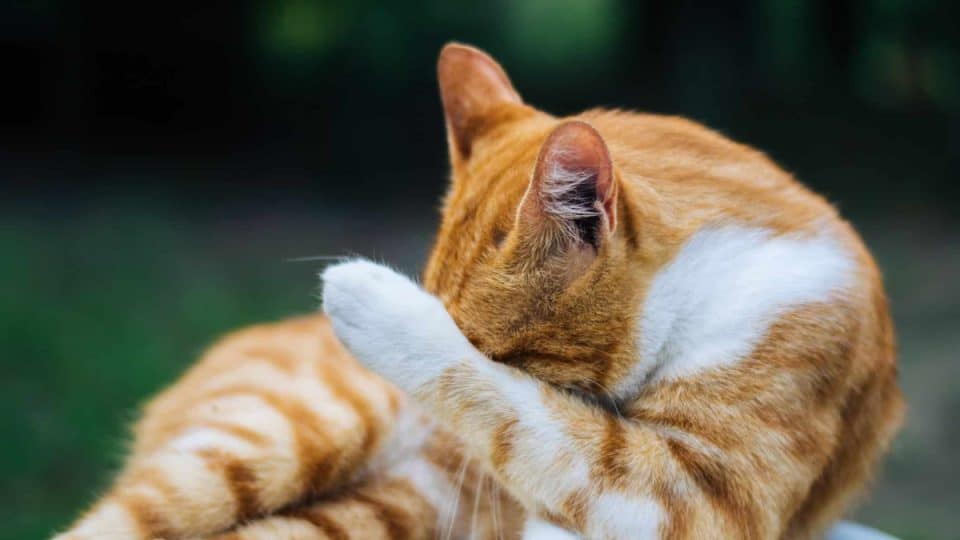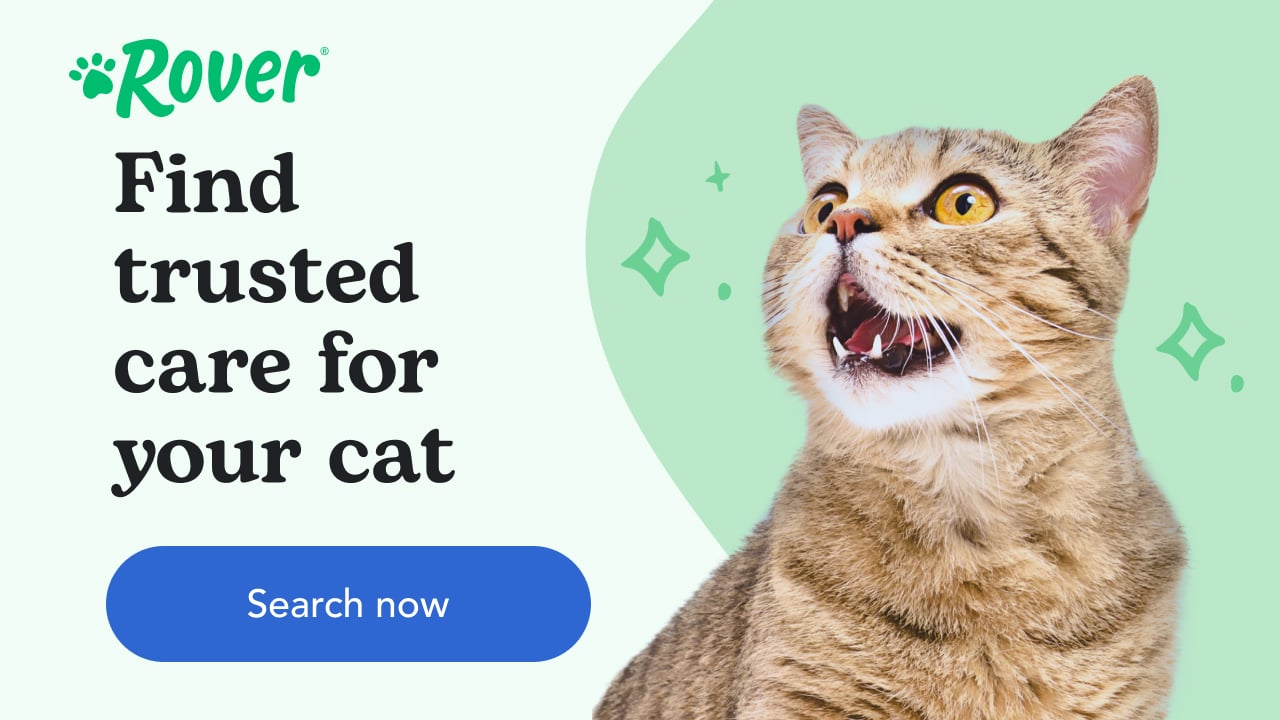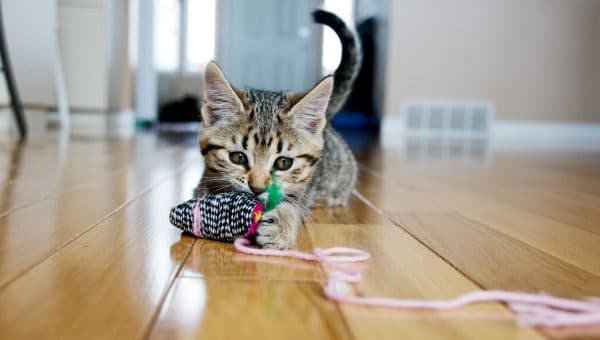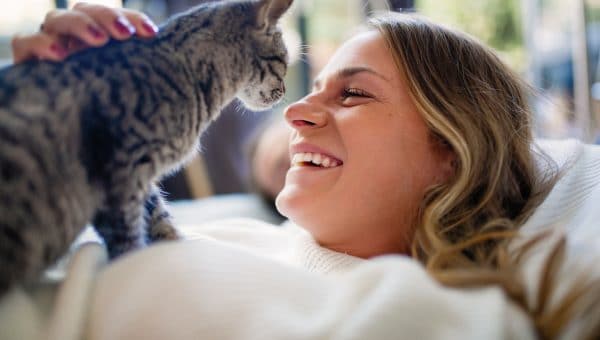If you just heard—or smelled—something that you suspect is a feline fart, you might be correct. Everyone farts, even your cat. Your cat farts for the same reasons humans do: bacteria in the gut break down food and produce gas in return. It’s essential and healthy for your cat to fart occasionally.
Many cat parents may not even realise when their cat passes gas since cats fart less than dogs or humans. So, if your kitten, adult, or senior cat is passing more gas than usual, they may have a digestive issue like intestinal parasites or an adverse reaction to something they ate. Throughout this article, we’ll uncover the answers to some of the most curious and common questions about cat farts, such as how often cats fart and why you’re suddenly smelling their foul odour.
Are Cat Farts Normal?
One to two cat farts a day is normal, says Candy Akers, DVM, a holistic veterinarian at Journey’s Mobile Veterinary Services. However, kittens and senior cats tend to fart more often than healthy adult cats. You might not notice when your cat passes gas, or a sound and an odour could accompany it. Just like cat poop varies in odour based on diet, so can feline flatulence.
However, frequent and smelly gas can indicate a medical condition and occur alongside other behavioural and health changes. If that’s the case, contact your veterinarian for appropriate care.
13 Reasons Cats Fart
Cat farts can be expected, meaning the bacteria in your cat’s gut are doing their job. Since cats don’t feel embarrassed, they don’t care if a fart slips out when you’re nearby—or when their butt is near your face.
However, if your cat’s farts are frequent, smelly, or are accommodated by other symptoms, it’s time to schedule a checkup with your vet.
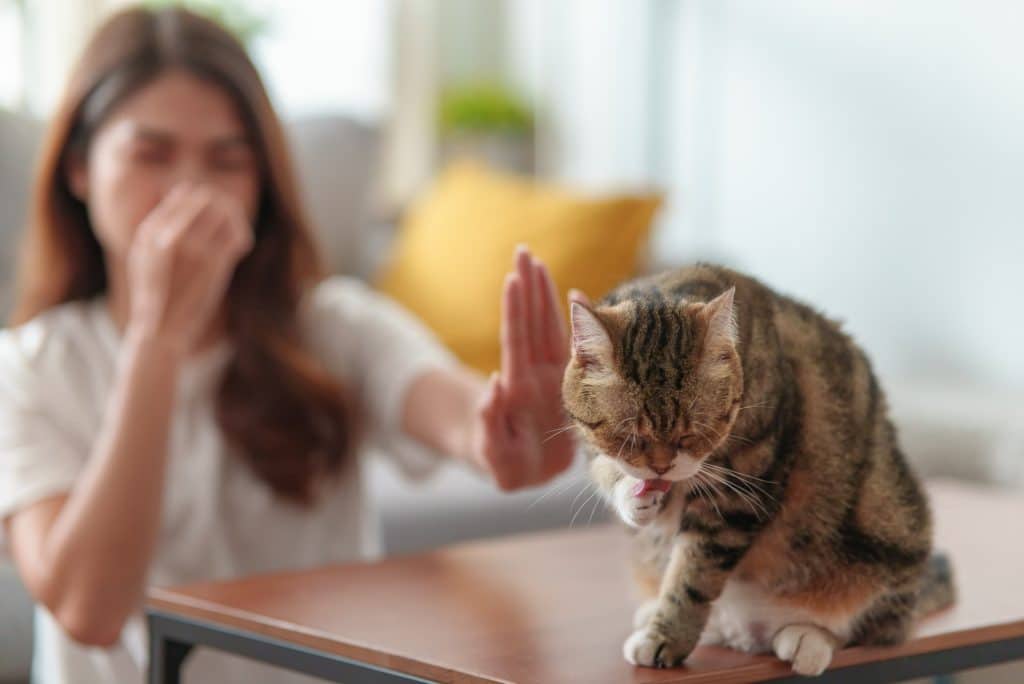
iStock/Kannika Paison
1. Normal gut activity
Like us, cats have billions of bacteria and other microorganisms in their digestive tract. Your cat’s gut microbiome affects everything from nutrient absorption to mood and immune system function. Regarding digestion, bacteria help break down food particles and produce gas in return. This gas is then released from the body as a fart.
Unlike us, healthy cats should only fart once or twice daily as part of their normal digestion. Humans, on the other hand, fart 14 to 23 times a day!
2. Too much harmful gut bacteria
Some of the bacteria in your cat’s gut are harmful bacteria. When bad bacteria outnumber good bacteria, your cat may have increased flatulence, diarrhoea, and other issues. To get your cat’s good and bad bacteria back in check, consider cat food enriched with probiotics.
3. Low-quality or inappropriate food
Cats are obligate carnivores, so they require animal-based proteins in their diet. While some commercial diets provide complete and balanced recipes with vegetables and carbohydrates, these ingredients can be difficult for your cat to digest and cause more gas. Similarly, if your cat enjoys sneaking off with a scrap of human food, they could experience digestive upset and frequent or smelly farts. Keeping human foods away from your kitty and choosing high-quality foods rich in animal protein can reduce cat farts.
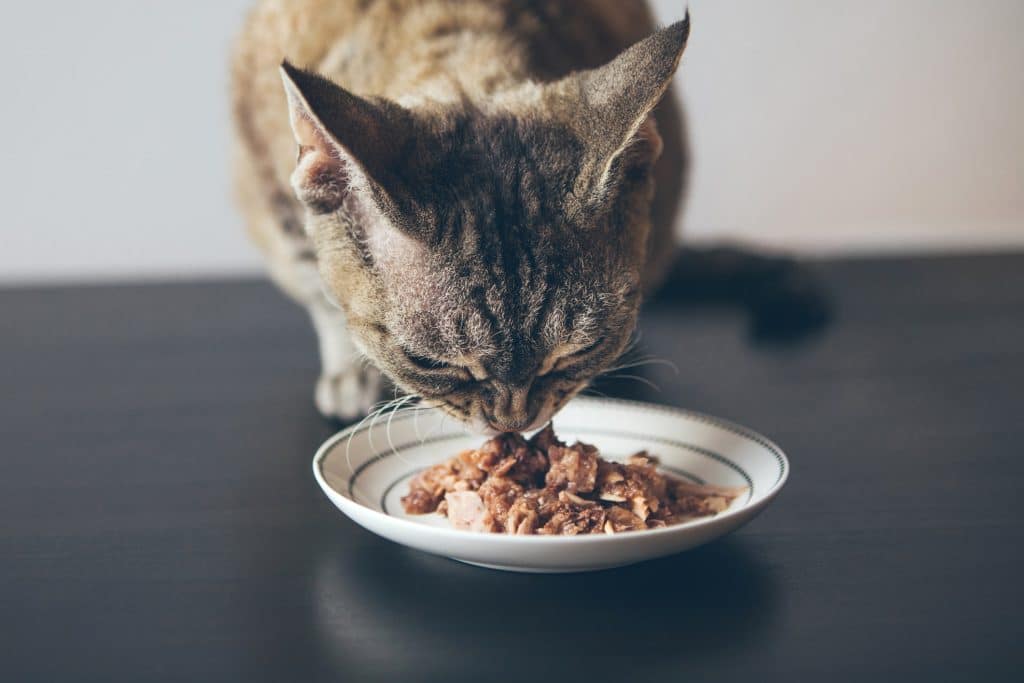
iStock/insonnia
4. High-fibre diets
Fibre can help your cat’s digestion by feeding good bacteria, moving waste along, and making your cat feel full. But fibre can also make your cat fart more. This is because some types of fibre are fermented in the colon where bacteria produce gas. Likewise, prebiotics can also cause more farting since they’re also fermented by bacteria in the colon. To reduce farting caused by fibre, slowly introduce fibre into the diet and provide plenty of fresh, clean water.
5. An immature digestive system
If a kitten can clear a room with a fart, contact your veterinarian to rule out an underlying cause. However, some extra gas is expected since their digestive tracts are still forming and transitioning to solid food. To reduce digestive upset and provide all the nutrients your little one needs, choose a high-quality kitten food approved by your veterinarian.
6. Food allergies
When your cat experiences excessive or stinky farts after eating a particular animal protein, they may have food allergies. Other symptoms of food allergies include itchy skin, vomiting, diarrhoea, and ear infections. If you think your cat has a food allergy, your veterinarian can help identify the allergen and recommend the best hypoallergenic cat food.
7. Eating too quickly
Eating too quickly can cause cats to gulp air. If your cat eats too fast, there are lots of ways to slow them down, including feeding cats in separate rooms to reduce competition, using lick mats, slow feeders, and puzzle feeders, or providing multiple, smaller meals throughout the day rather than one or two large meals.
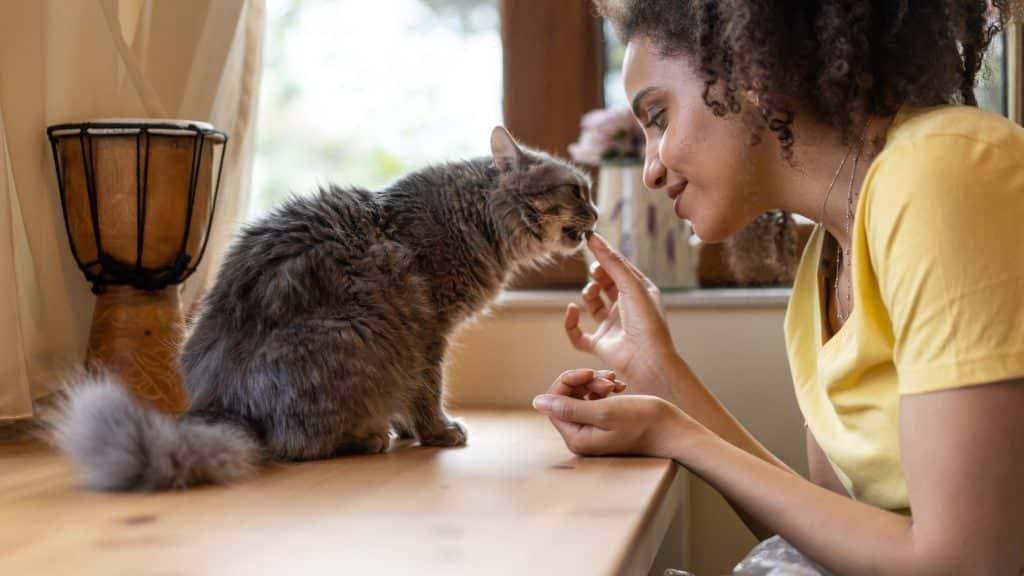
iStock/valentinrussanov
8. Transitioning to new food too quickly
If you’re transitioning your cat’s food too frequently, it can cause gas, diarrhoea, and vomiting. Safely transition your cat to a new food by gradually mixing increasing amounts of the new food with decreasing amounts of the old food. Your cat may take up to a week to transition to their new food.
9. Intestinal parasites
Intestinal parasites and worms are prevalent (and dangerous) in kittens but can invade any cat’s gut. Signs your cat might have worms or another intestinal parasite include increased gas, diarrhoea, weight loss, and a bloated tummy. Your vet can perform a faecal test and deworm your cat if you suspect they have intestinal parasites.
10. Bacterial or viral infection
Bacterial or viral infections in the gut can cause cats to fart more. You may also notice diarrhoea, loose stools, mucus-filled stools, vomiting, and a decreased appetite. Only your veterinarian can diagnose the underlying cause, including infections such as gastroenteritis (stomach and intestinal tract inflammation) and trichomoniasis (an infectious disease caused by the parasite Tritrichomonas foetus), and salmonella poisoning. Treatment varies by diagnosis and the severity of the infection. Without treatment, bacterial and viral infections can be life-threatening for your cat.
11. Stress, anxiety, or fear
When stressed, anxious, or scared, harmful bacteria in the gut can increase. This can cause your cat to fart more, weaken their immune system, and trigger other digestive issues like loose stool and vomiting. Some ways to earn a cat’s trust and reduce their fear or anxiety to lower farts include appropriately responding to their body language, minimising loud noises, providing cat beds, trees, and window perches, sticking to a routine, playing daily, and using calming pheromones when needed.
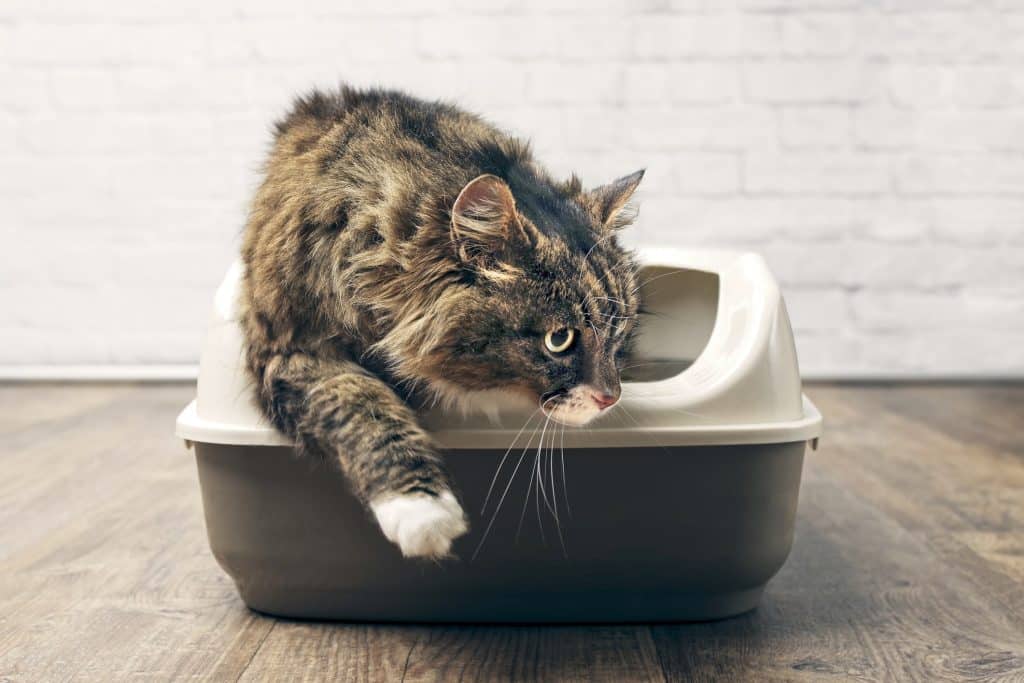
iStock/Lightspruch
12. Inflammatory Bowel Disease (IBD)
IBD is a group of chronic stomach issues without an apparent underlying cause. Since we don’t know what causes IBD, diagnosis is difficult and typically occurs after ruling out other medical conditions. Symptoms may include gas and bloating, loose stool, weight loss, loss of energy, and loss of appetite. Just as the cause of IBD isn’t clear, neither is the treatment. However, your veterinarian may recommend diet changes or probiotics to relieve your cat’s symptoms.
13. Lymphoma
Lymphoma is a type of cancer that invades and kills tissue. Feline lymphoma can affect any body part but is most common in the GI tract, chest, and lymph nodes. The symptoms vary based on the cancer’s location and severity. They can include lack of appetite, lethargy, weight loss, chronic diarrhoea, vomiting, gas, or difficulty breathing. With prompt treatment, including chemotherapy and surgery, 50-75% of cats achieve complete remission.
Are Farts Uncomfortable for Cats?
Farting can indicate that your cat is experiencing uncomfortable tummy troubles, especially when they have diarrhoea or bloating. Symptoms your cat doesn’t feel well (besides farting) include:
- loss of appetite
- weight loss
- lethargy or lack of interest
- poor grooming habits
- hiding
Cat probiotics can be kept on hand when your cat’s digestive system needs a boost. However, never give your cat any human medications without speaking with your veterinarian.
Do Cats Fart More Than They Burp?
Yes, cats fart more than they burp. However, cats do burp, and it’s essential to burp a bottle-fed kitten after each meal since a build-up of air can be life-threatening.
When gases build up in the lower part of the digestive system, usually the large bowel, the body lets them out as farts. When the air gets trapped in the upper part of the digestive system, the body releases it as burps.
Cats might burp because they ate too fast or have indigestion, hairballs, or acid reflux. But, unlike farting, burping isn’t a normal digestive process.
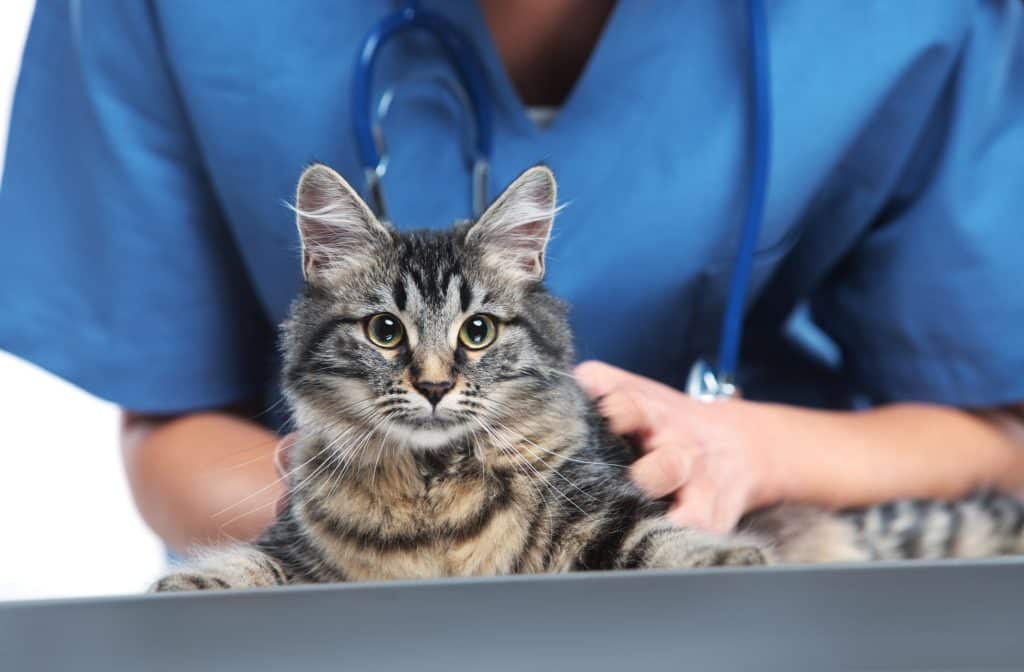
iStock/cyano66
When to See A Vet About Cat Farts
Most of the time, a little flatulence in cats isn’t cause for concern. Their bodies are simply processing what’s passing through. However, if they’re farting more frequently, it’s time for a trip to the vet. Don’t hesitate to ask your veterinarian if you have questions about your cat’s digestion; they can recommend cat foods that are gentle on the stomach and supplements that can help with digestion, like probiotics.
